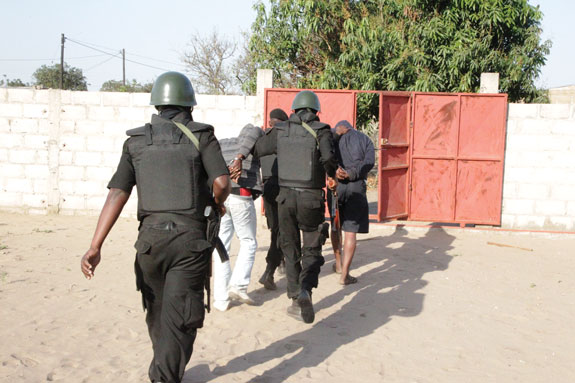Mozambique: Police recover 12 goats stolen from UEM
Profile of kidnappers in Mozambique

Noticias (File photo)
On Thursday 15 September, a gang of armed kidnappers abducted 60-year-old Issufo Mohamed. According to Octávio Zilo, a Maputo prosecutor, the fight against crime requires more qualified police who are better trained and more motivated and honest.
The latest kidnapping victim owned the establishment Armazéns Lomba Viana e Filhos, Lda., located on Avenida Filipe Samuel Magaia.
Mohamed, who was abducted at approximately 19:00hrs, remains in the custody of his abductors, along with his brother, who was abducted a few days earlier from the same area.
According to Zilo in Mozambique abductions occur due to several reasons, including the degradation of moral values, the existence of profound social inequalities, conflicting family relationships, greed, lack of a better option for survival, unemployment, low wages, high cost of living and the unequal distribution of income.
According to Zilo, statistics show that the overwhelming majority of individuals involved in kidnappings are young men between 18 and 30 years.
Profile of kidnappers:
In another development, the speaker gave a brief profile of the kidnappers involved in this form of organised crime.
According to him, there are two groups of people involved in kidnapping. The first are individuals aged between 30 and 50 years. They are “reserved and practical, careful and very resentful, suspicious and unobtrusive. They are of
average social status, with a history of criminal activity (some may even have criminal records), with observation and
analysis capabilities, patient and with organisation skills. They are not very violent and with speak well”.
The other group consists of men aged between 20 to 25 years. These men are of low social status and usually have a history of drug and alcohol use and come from neighbourhoods with high crime rates. In general, these people are alert and suspicious, egocentric and greedy for leadership. They are often violent and have a poor and vulgar speech pattern.
Young people are often the face of crime, because, according to Zilo, they are more susceptible to the strong influence of friends and money. In addition, they are often unable to find work because of the lack of professional experience, and are often driven by the need for affirmation.
The lack of technological resources needed to combat this type of crime and the difficulty in locating and capturing the perpetrators (largely due to the fact that victims fear naming and testifying against their abductors), create huge obstacles. In addition, it is often difficult to get a coherent testimony from victims due to their physical and psychological condition after being rescued or released.
Consequences of kidnappings:
According to the prosecutor, kidnappings instil fear amongst the population and often result in a lack of confidence in the police and justice system. The psychological effects on victims is much more complex.
Children who have been violently abducted often develop psychological disorders and sudden behavioural changes ranging from inappropriate laughter or crying, reverting back to baby talk, nightmares and social anxiety (such as Agoraphobia).
Kidnapping also negatively affects the country’s economy as large amounts of money is taken offshore.
For the prosecutor, combatting this type of crime does not necessarily mean increasing the number of police officers, vehicles or weapons. Rather it requires honest, motivated and skilled police officers with better training.
Zilo suggested, among other measures, the development of a national policy on abductions or on organised crime as
well as a survey and diagnosis of the nature and level of the problem.
According to Zilo, the country does not have any reliable statistics on the influence that alcohol and drugs have on other types of crimes, but experience shows that in cases of violent crimes, protagonists were more often than not under the influence of drugs.













Leave a Reply
Be the First to Comment!
You must be logged in to post a comment.
You must be logged in to post a comment.